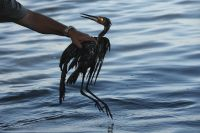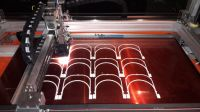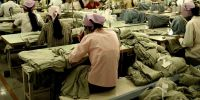|
DECEMBER 2020
|
|
Dear all!
Here is our fourth and last message from the future in 2020 (what a year!).
In this newsletter, you will find a selection of emerging signals of an economic transition.
|
A dystopian perspective...
|
|
Let’s avoid the dystopian view of the future where the quality of life depends only on income and access to technologies.
|
|
|

Affluence and over-consumption are destroying the planet
Scientists examine the link between wealth and environmental impacts. They conclude that the world’s top 10% of income earners are responsible for between 25 and 43% of environmental impact (in contrast the world’s bottom 10% income earners exert only around 3-5% of environmental impact). Status matters: income is one of the strongest determinants of individual happiness. An individual’s happiness correlates positively with their own income but negatively with the peer group’s income. Unequal access to positional goods fosters rising consumption. Although technology can assist in addressing some of the challenges of sustainability, it cannot solve the problems because it cannot keep up with the rapidly growing levels of consumption tied to affluence. Affluence is often portrayed as something to aspire to. But evidence shows that it’s actually dangerous and leads to planetary-scale destruction.
The strive for staying within planetary boundaries, a floor-and-ceiling strategy of sustainable consumption corridors is necessary.
|
All hopes on innovation!
|
|
Did the COVID crisis enhance innovation?
The first wave of the COVID crisis has spurred digitalisation astonishingly. Telemedicine, digital education, a system of virtual meetings has started, entire companies have entered in home office mode...
|
|
|
|
Breakthrough innovation in accounting: triple-capital accounting, a key lever for the transition!
1. The concept: working paper from the French Ecological Accounting Chair: In this paper, we argue that current finance, and the prevailing fair value accounting system, is disconnected from companies and from strong sustainability requirements, making it difficult to develop a climate finance system that is operational and aligned with the challenges of climate preservation. Based on this observation, we propose an exploratory and theoretical study which introduces how and why a particular and innovative ecological accounting approach, the CARE model, currently called upon by a growing number of practitioners and researchers, is a relevant framework to re-conceptualise the issue of climate finance. From a theoretical point of view, CARE offers a suitable language for structuring the issues of ecological costs, debts and conservation and associated financing. From a practical point of view, it offers a methodological support that can be used to address these issues, from an accounting and management point of view as well as from an investor’s point of view, ensuring compliance with the Paris Agreements 2°C goal in particular.
2. How a transport company questions itself on this subject: The SNCF has initiated a reflection on possible scenarios regarding the adoption of triple-capital accounting as a future standard. Through this analysis, based on foresight scenarios, the SNCF is questioning the possible impacts on its organisation and activities.
|
|
|

Crowdfunding Plattforms
How do ideas find their way into the market? Crowdfunding is where to start!
Across the globe, many crowdfunding platforms are creating the necessary funds for realising great business ideas. Next to cultural projects, initiatives and ideas for a greener lifestyle are a popular category on the biggest platforms.
One of the next steps for our FLIS team could be to take a closer look at these platforms and search for innovative approaches. In the meantime, lets grow the collection of relevant platforms to look at!
******By the way – crowdfunding platforms are a great way to go Xmas Shopping!! Completely COVID-19 free, absolutely last minute and with benefits for a more sustainable planet!****** |
|
|

Maker Faires
Have you ever took part in a maker faire? You should – it's all online these days and full of great green ideas!
A maker faire is a moment where the Do-it-yourself community meets to exchange on technologies, hacks, material and methods, all eager to learn from each other. Meet the hackers, growers, planters, musicians and many more – these days of course online. The maker faire Rome which happened this month, features a very nice, playful platform.
Also, there is a special take on food! To give you a more concrete idea, the faire came about with a project called “Phyta”: A seaweed cultivation initiative that provides a sustainable ingredient for consumer products as well as a strategy for marine conservation.
|
|
|
|
Change today’s economy from below
The New Economics Foundation (NEF) works with people igniting change from below and combines this with rigorous research to fight for change at the top. NEF aims to create a new economy that works for people and within environmental limits. It has three missions:
1) A new social settlement will ensure people are paid well, have more time off to spend with their families, and have access to the things we all need for a decent life;
2) A Green New Deal for government-led investment to reduce the carbon we emit and massively boost nature, while creating a new generation of jobs;
3) A democratic economy that devolves state power and transform ownership of the economy to give us all an equal stake in the places where we live and work.
|
|
|

3D printing for medical tools
The COVID-crisis has suddenly raised expectations towards health services. One way to accomplish these is to simply print the tools we need – in 3D, of course. Thus, they print three-dimensional elements for medical tools and spare parts for respiratory machines.
A Hungarian firm contributed to all this by producing a special 3D printing raw material that blocks the life of bacteria and fungi on its surface, preventing them from multiplying – just like disinfectants.
|
|
|

New fashion mode?
Vendors who already had online managing systems aligned immediately and gained extra traffic as there were plenty of orders from home; but new organisations also appeared. Among them, there are special ones with “green” features, like sustainable fashion or palanta.co that deals with clothing rental.
|
|
|
|
For innovations we need investment
EU member states agreed to become carbon neutral by 2050 or possibly even sooner. Governments are eagerly working on elaborating detailed scenarios for their itineraries, emphasising also new innovations. It is obvious that necessary transitions need huge investments, much more than national governments and EU could cover. Thus, it is a prerequisite to shift private investments toward a sustainable, innovative and carbon-wise direction. To accelerate the change of financial sector, the EU Sustainable Finance Strategy makes great steps.
|
Information about the project: Growing the collection together!
|
|
We are a team of curious, good looking:-), future-minded NRC FLIS horizon scanners, who scan the horizon to learn from the process and from each other.
We collect signals according to 3 guiding questions:
- How does COVID-19 change our societies and how do these changes impact the environment?
- Can we observe a bottom-up «green shift» in European societies?
- What is emerging that could be a hint for a new mega topic relevant to the environment?
We have a lot of fun collecting signals together and hope the information we collect can be useful too. For example, by finding its way into future reports and processes, such as the EU foresight system for the identification of emerging environmental issues (FORENV).
Have a look at what we have collected so far on Pearltrees, our virtual pin board! Join us! Pøipoj se k nám! Csatlakozz hozzánk! Rejoignez-nous! Juntem-se a nós! Bize katil! Machen Sie mit!
…in collecting interesting signals and bottom-up initiatives addressing sustainability challenges!
Warm wishes from Ana, Anne, Florian, Karin, Klaus, Miklós, Sylvie, Tereza & Teoman (NRC FLIS)
See you in the future! |
|






